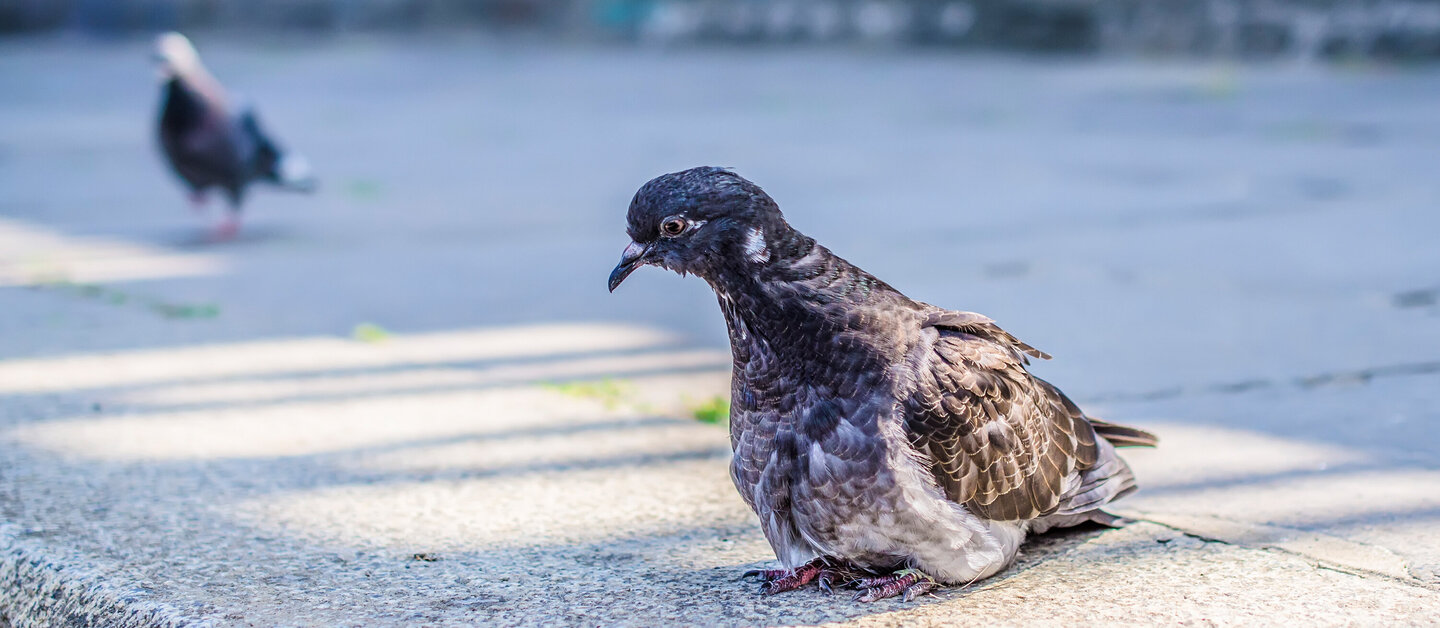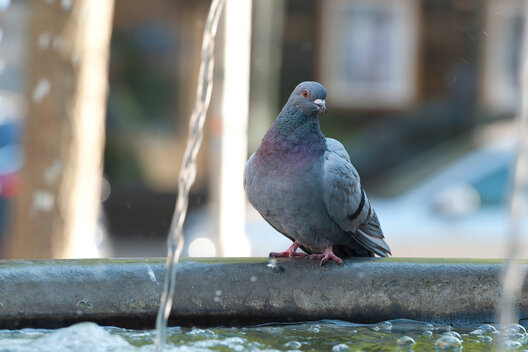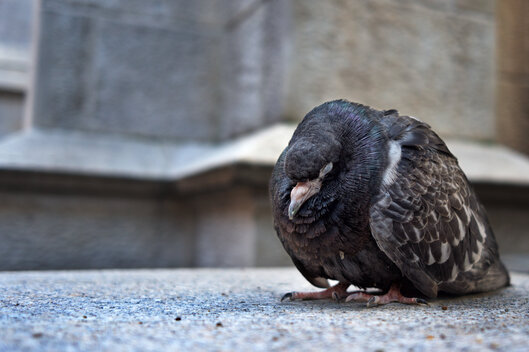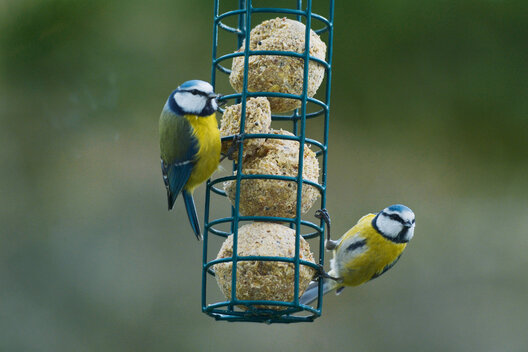Why are we running the pigeon protection campaign?
Many people refer to pigeons as "rats of the air". They are afraid of infection. Pigeons are also unwelcome in many towns and cities, as they contaminate buildings and squares. "You love them or you hate them", but the pigeon doesn't deserve that: it is a very lovable and intelligent animal that even recognizes human faces. It stands for love and peace and is loyal. It stays with its partner for its entire life. Even if you don't love it, it deserves one thing from everyone: respect.
Where do city pigeons come from? City pigeons are descendants of domestic pigeons that have flown away and have been bred from the wild rock pigeon for various purposes over the centuries (e.g. as carrier pigeons). As they are descendants of domestic pigeons, their lives are closely linked to those of humans. The ability of these animals to adapt perfectly to the human habitat, the inappropriate food supply (e.g. food waste) and the ability to reproduce throughout the year (a consequence of breeding) have led to an explosive increase in the population in cities.
Are pigeons harmful to health? The fear of disease is unfounded: The health risks posed by pigeons are no greater than those posed by other ornamental and wild birds or pets. Although urban pigeons are often said to be the cause of ornithosis (a notifiable disease), for example, no urban pigeon has been identified as the alleged cause for years. The disease of salmonellosis in humans cannot be attributed to urban pigeons either.
Am I allowed to feed pigeons? Please do not feed the pigeons uncontrolled. In the city, pigeons feed mainly on waste and on wheat, rice, birdseed and maize spread by humans. However, the spread feed often lacks important vitamins, minerals and proteins. Feeding at irregular times also causes problems: Often both pigeon parents are then at the feeding place at the same time and may wait quite a long time for their feeders. The young in the nest are inevitably neglected. If the food is concentrated in one place, aggressive and large animals (usually males) crowd out the less strong females and young, so that they often cannot take in enough food.
How can the pigeon population be regulated in a way that protects animals? Many pigeons suffer from malnutrition due to the wrong food, as they cannot find suitable food or sufficient drinking water in the city. There is also a lack of suitable breeding opportunities in cities. The animals are often sick or malnourished. This can also be attributed to the density stress caused by overpopulation. However, the city can help here by providing pigeon houses and towers in which they are fed appropriately, their health is monitored and they can nest in peace, but their eggs can be exchanged for dummies. This results in a smaller, healthy urban pigeon population. The urban pigeons stay away from hotspots and most of the pigeon droppings are collected in the lofts, keeping the city cleaner. A win-win situation for all sides.
How can you help? It's quite simple: accept the pigeon as your urban roommate. You don't necessarily have to love them, but treat them with respect. Don't torment it and don't kick it. If you want to do more than that: Talk to your city about an animal welfare-friendly solution.
What is the German Animal Welfare Federation calling for? We appeal to everyone to respect pigeons and not to torture or kick them. We demand that affected cities and municipalities take the animal welfare measures that have already been tried and tested to ensure that humans and animals can live together peacefully. Only in this way can a reduction in the pigeon population and a reduction in animal suffering be achieved in the medium term.




